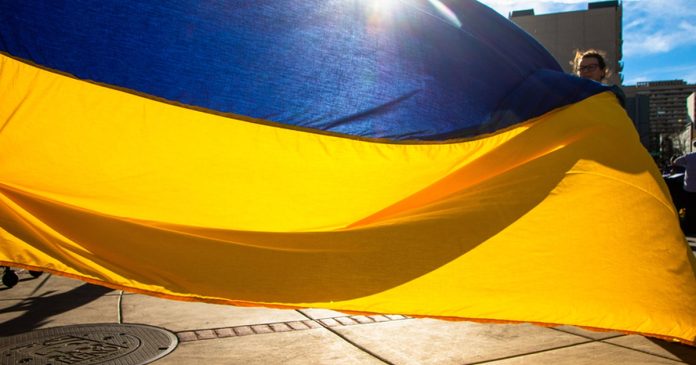In recent months, there has been a noticeable shift in public opinion in Ukraine about possible peace talks with Russia, reports The New York Times. Although most Ukrainians are still categorically opposed to the transfer of any territory, including the Crimean Peninsula, the number of those who are open to the idea of peaceful conflict settlement through negotiations are increasing.
But these polls and recent statements of the country's leaders testify to a tangible shift in conversation about peace talks-from "no-no-nicholas" to "possible compromise at some point."
In mid -July, a survey of Ukrainian independent media Zn. UA showed that about 44% of Ukrainian citizens advocated the beginning of official negotiations with Russia. On July 23, the Kyiv International Institute of Sociology published the results of a survey, according to which almost a third of Ukrainians would agree to give way to Russia part of the territory to end the conflict. This is more than three times more than a year earlier.
28-year-old Nadia Ivashchenko from the Kirovograd region says that he cannot describe a good peaceful settlement. But her husband has been serving in the army since February 2022, and the couple has a five -year -old son who has not seen her father for several years. "So many people were killed and for what?
Russia has not agreed to participate in the second peaceful summit, but in recent weeks the Kremlin has also made it clear that he could start negotiations, even if Kiev fails to meet June Putin's demands. However, many Western officials and analysts doubt that Putin is ready to negotiate something except for a peace agreement on their own terms.
One of the key advisers of Zelensky last week stated that to enter into an agreement with Putin now is like signing a "Devil's Agreement". Although a survey of the Kiev Institute showed a threefold increase in the number of people ready to give the land for peace, 55% of Ukrainians oppose any territorial concessions.
In the south, in one of the regions that were most affected by the conflict, a change in the attitude to what was happening in the last year was striking, a survey of the Kiev Institute showed. More than half of the respondents said they either maintain the assignment of some territories or not determined. Only 46% spoke against any concessions. A year ago, 86% of residents of this region covering the Dnieper, Zaporozhye, Mykolaiv, Kherson and Odessa stated that they were against the transfer of Russia of any territories.
Nicholas, a 33-year-old resident of Odessa, who did not want to call his name, because he evaded the conscription in the army, said that he could consider the possibility of concession to the Crimean peninsula, which is already under the control of Russia, or district near Lugansk as part of the agreement. But he added: "As a person who sits at home and does not beat on the battlefield, I do not think that I have the moral right to say what this agreement should have."
Freezing the fighting line will lead to the regions where many Ukrainians reside will remain uncertain for Russia. And the territories liberated by Ukraine are destroyed by Russian blows and have a gloomy look.
In the study of the Kyiv Sociological Institute, it was not determined how large the concessions should be, whether the territory should be given officially or to temporary control of Russia.
"The main reason is the unfulfilled expectations of last year, because many people had high hopes," said Anton Hrushetsky, executive director of the Kiev International Institute of Sociology. He added that many Ukrainians saw these hopes fell, especially because of delayed US military assistance.


